Portugal, a country renowned for its rich history, stunning coastlines, and vibrant culture, truly comes alive in the summer months with an array of captivating festivals. From traditional folk celebrations to modern music extravaganzas, Portugal’s summer festivals offer something for everyone. This blog post will guide you through some of the most notable festivals, providing a glimpse into the unique cultural tapestry that makes Portugal a prime destination for summer festivities.
Festivities in Lisbon: Festa de Santo António
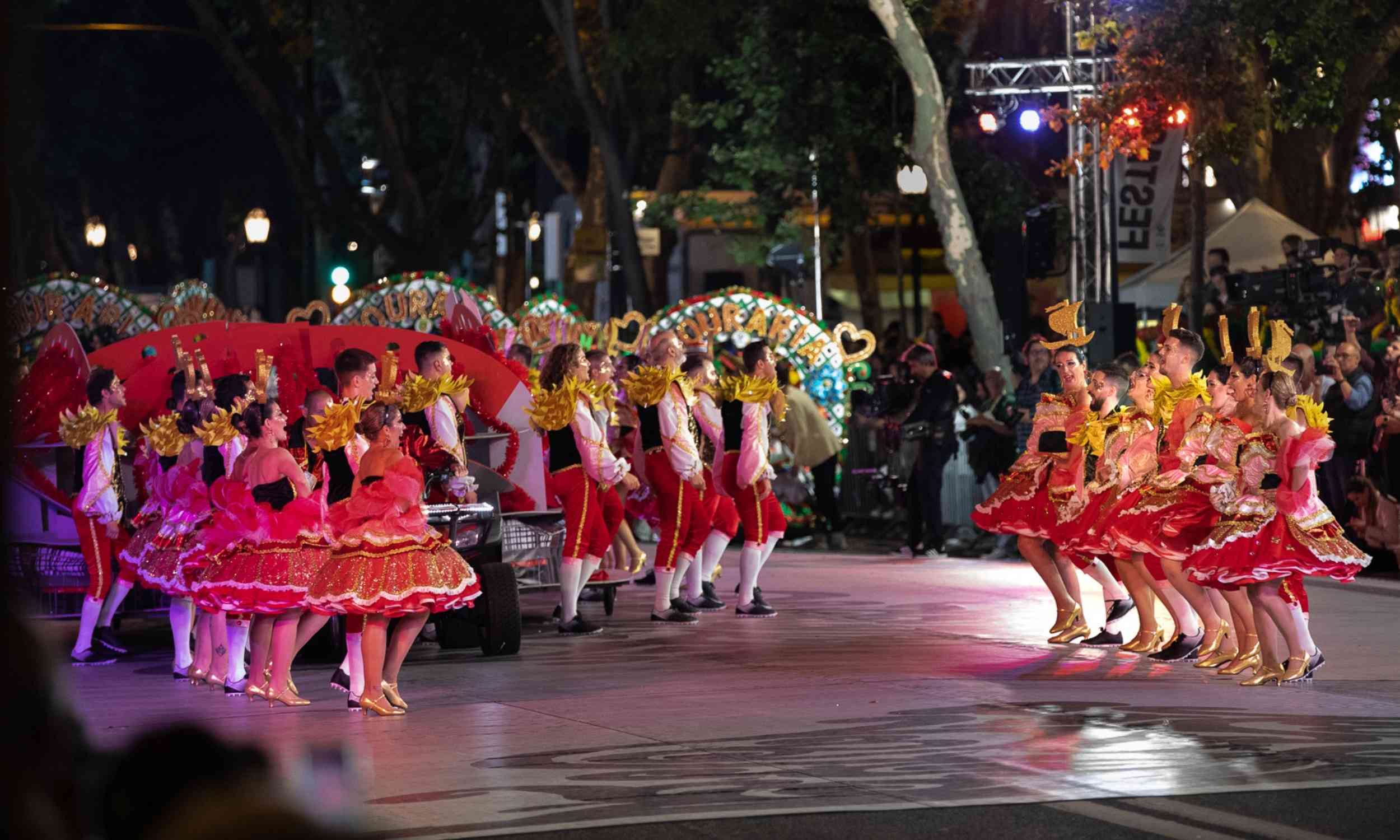
Lisbon, Portugal’s capital, is a city that exudes charm and history. Each June, it transforms into a vibrant party hub during the Festa de Santo António, also known as the Festival of Saint Anthony. Celebrated from June 12th to June 13th, this festival honors Saint Anthony of Padua, the patron saint of Lisbon.
History and Origins
The Festa de Santo António dates back to the 13th century and has roots in both religious devotion and local folklore. Saint Anthony, known for his eloquent sermons and affinity for the poor, became a beloved figure in Lisbon. Over the centuries, his feast day evolved into a grand celebration that reflects both spiritual reverence and communal joy.
What to Expect
Parades and Street Parties: The festival kicks off with lively parades where neighborhoods compete in decorating their streets and showcasing their dance routines. The Avenida da Liberdade becomes a colorful parade route filled with music, dance, and joyous crowds.
Traditional Sardine Grills: A hallmark of the festival is the smell of grilled sardines wafting through the air. Locals and visitors alike indulge in sardines, bread, and wine, turning the streets into a communal dining experience.
Wedding: Known as the “Saint of Love,” Saint Anthony is also celebrated with mass weddings, or “casamentos de Santo António,” where multiple couples tie the knot in a grand ceremony sponsored by the city.
Travel Tips
For those planning to attend, it’s advisable to book accommodations well in advance as the city fills up quickly. Staying in central Lisbon ensures you’re close to the action. Arrive early to find a good spot along the parade route, and don’t forget to try the traditional sardines paired with a glass of local wine.
Porto’s Festa de São João
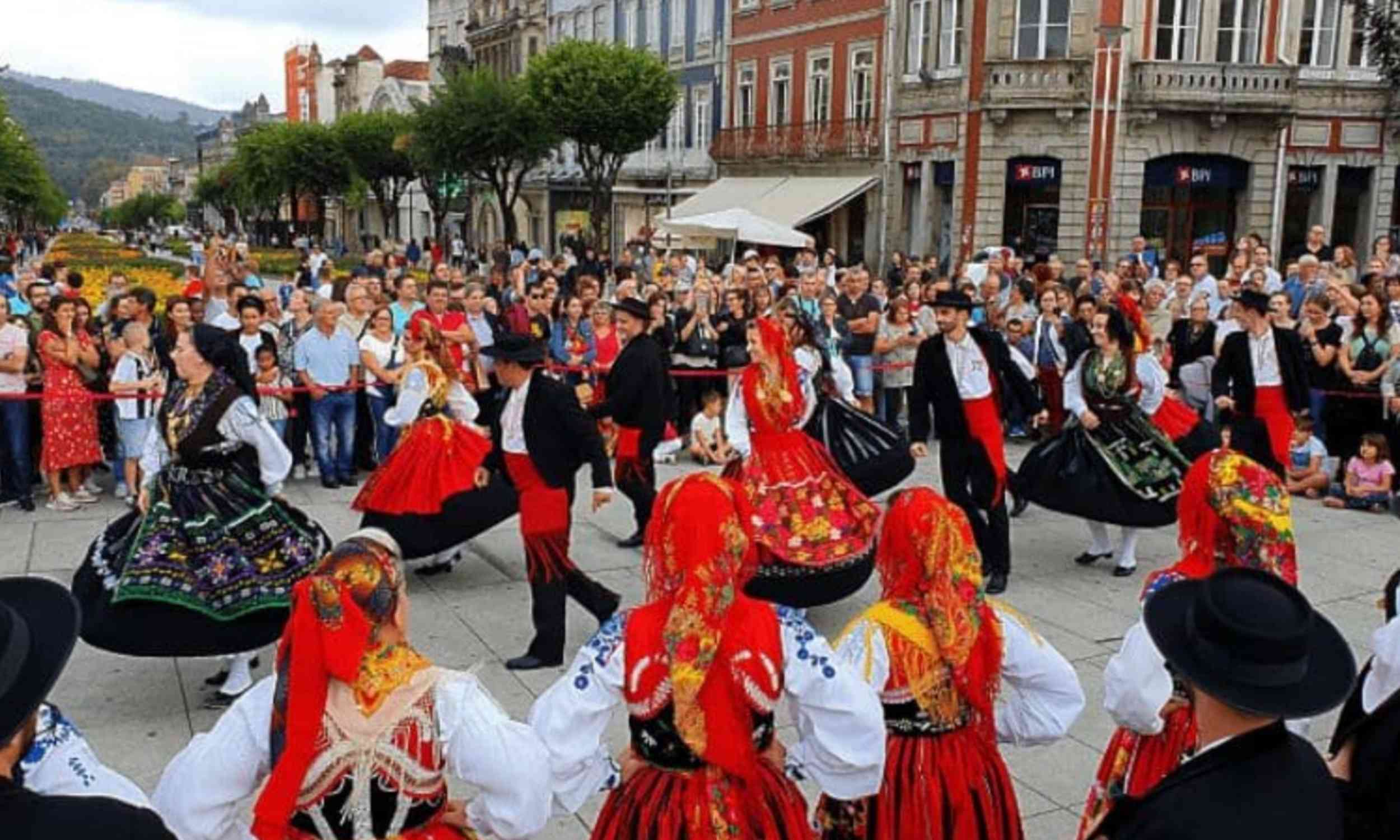
Moving to the north, Porto hosts one of the most eccentric and beloved festivals in Portugal, the Festa de São João, or the Festival of Saint John. Taking place on June 23rd, this festival is a blend of religious reverence and playful traditions.
History and Origins
The Festa de São João has its roots in pagan solstice celebrations that were later integrated into Christian traditions. Over time, it became a celebration dedicated to Saint John the Baptist, marked by various customs aimed at ensuring a bountiful harvest and protecting against evil spirits.
What to Expect
Hammer Time: One of the unique traditions is the playful hitting of plastic hammers on people’s heads, symbolizing good luck. It’s a friendly gesture that fills the streets with laughter.
Fireworks and Bonfires: As night falls, the sky over Porto illuminates with spectacular fireworks. Bonfires are lit along the Douro River, adding a mystical glow to the celebrations.
Balloon Releases: Colorful hot air balloons, known as “balões de São João,” are released into the night sky, creating a mesmerizing visual spectacle.
Gastronomy: Traditional foods like grilled sardines, “caldo verde” (a kale soup), and “broa de milho” (cornbread) are enjoyed by festival-goers, making it a feast for the senses.
Travel Tips
Porto’s historic center, a UNESCO World Heritage site, is the ideal place to stay. Many festivities occur along the Douro River, so consider booking a riverside accommodation for the best views. Be prepared for crowds and a lively, festive atmosphere that continues well into the night.
The Medieval Fantasy of Óbidos: Mercado Medieval
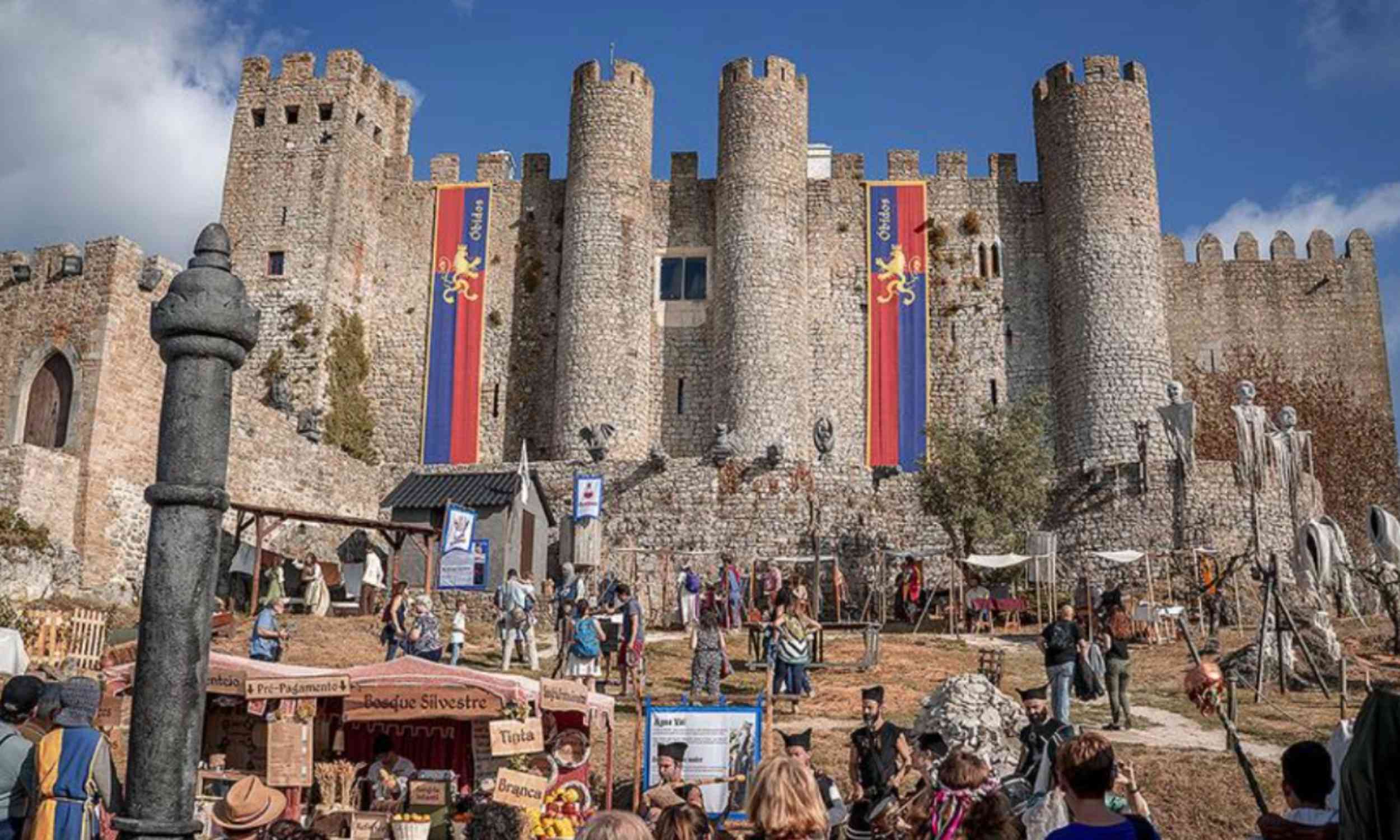
For those who wish to travel back in time, the Mercado Medieval in Óbidos is an unmissable event. Held annually in July, this medieval market transforms the charming town of Óbidos into a historical wonderland.
History and Origins
Óbidos has a rich medieval history, and the Mercado Medieval was created to celebrate and preserve this heritage. The event aims to recreate the atmosphere of a medieval fair, complete with period costumes, crafts, and performances.
What to Expect
Historical Reenactments: The streets of Óbidos are filled with actors dressed in period costumes, reenacting scenes from medieval life, including jousting tournaments and sword fights.
Artisan Crafts: Stalls selling handcrafted goods, from pottery to jewelry, offer visitors a chance to purchase unique souvenirs and witness traditional craftsmanship.
Medieval Cuisine: Feast on hearty medieval dishes such as roasted meats, bread, and ale, served in rustic wooden taverns, enhancing the immersive experience.
Entertainment: Musicians, jugglers, and fire-eaters provide constant entertainment, ensuring that every corner of the town is alive with the spirit of the Middle Ages.
Travel Tips
Óbidos is a small town, so it’s best to stay in nearby towns or book early to secure accommodation within the town itself. Wear comfortable shoes as the cobblestone streets can be challenging to navigate. Don’t miss the opportunity to try “Ginja de Óbidos,” a local cherry liqueur served in chocolate cups.
Funchal’s Atlantic Festival
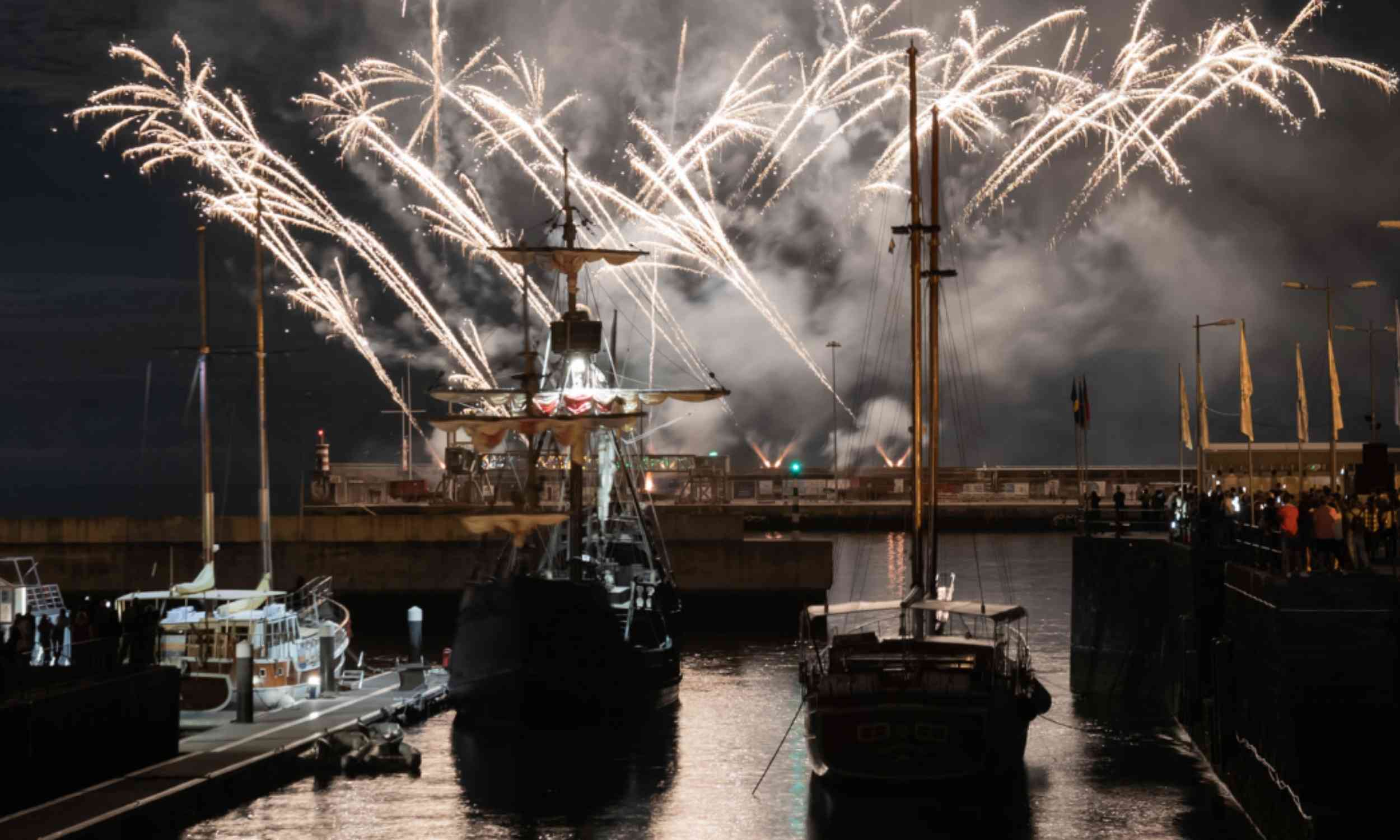
On the island of Madeira, Funchal hosts the Atlantic Festival, a month-long celebration in June that combines fireworks, music, and culture.
History and Origins
The Atlantic Festival was established to mark the start of summer and to attract visitors to Madeira during a traditionally quieter period. It has since grown into a major event, showcasing the island’s cultural richness and its tradition of fireworks displays.
What to Expect
Firework Competitions: Every Saturday, pyrotechnic companies from around the world compete in a dazzling fireworks display synchronized with music. The vibrant explosions over the Atlantic Ocean are a sight to behold.
Classical Music Concerts: The festival features performances by the Madeira Classical Orchestra, adding a sophisticated touch to the celebrations.
Cultural Activities: Various cultural events, including art exhibitions, theater performances, and street entertainment, take place throughout the month, showcasing the rich heritage of Madeira.
Travel Tips
Madeira’s mild climate makes it a year-round destination, but the Atlantic Festival adds an extra layer of excitement. Consider renting a car to explore the island’s scenic landscapes and botanical gardens. Funchal’s waterfront is the best place to view the fireworks, so plan to arrive early to secure a good spot.
Festival do Sudoeste: A Music Lover’s Paradise
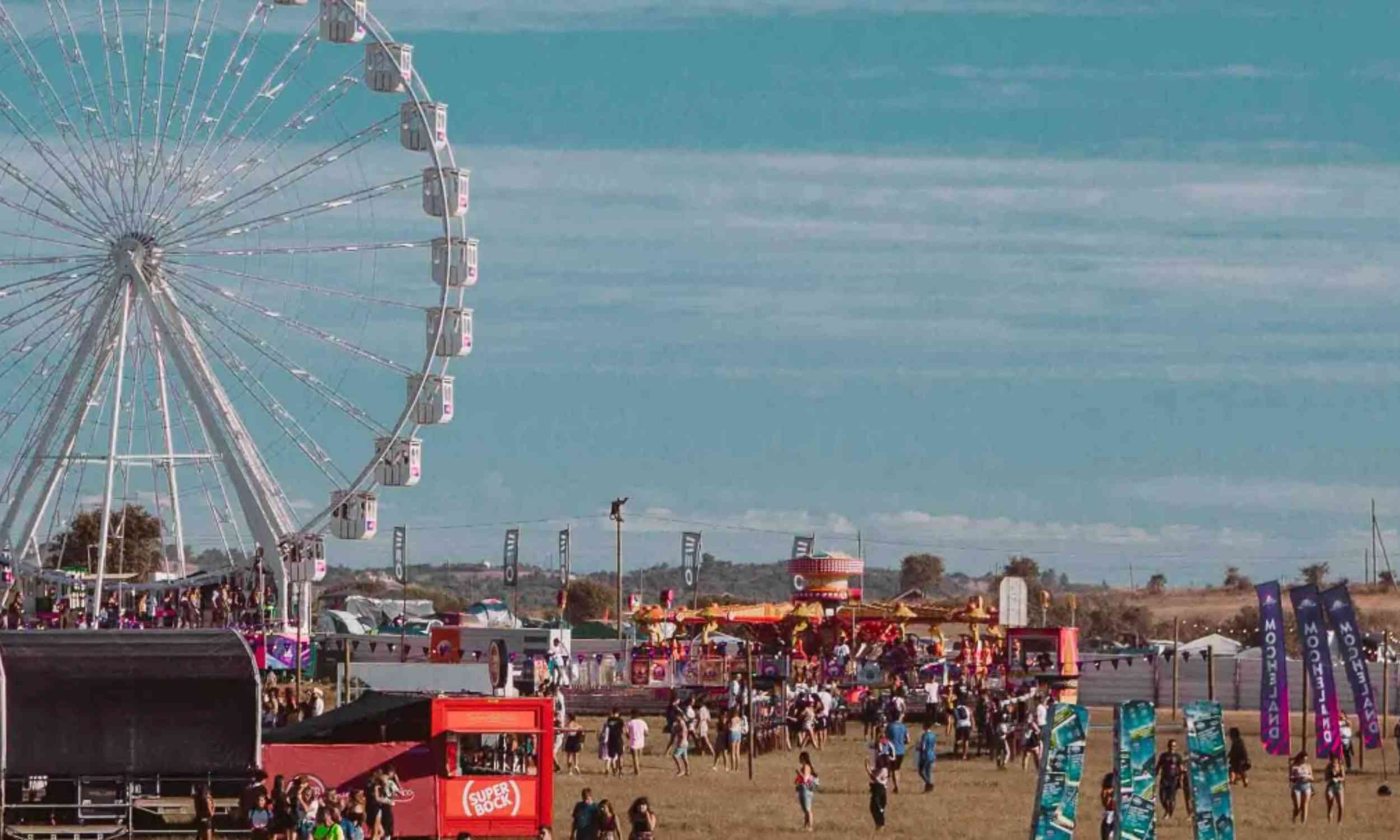
For modern music enthusiasts, the Festival do Sudoeste, held in Zambujeira do Mar in August, is a major highlight. This five-day festival attracts international and local artists, offering a diverse lineup of music genres.
History and Origins
The Festival do Sudoeste began in 1997 as a way to bring contemporary music to Portugal’s rural Alentejo region. It has since grown into one of the country’s largest and most popular music festivals.
What to Expect
Headlining Acts: Previous lineups have included big names from the worlds of rock, pop, electronic, and hip-hop, making it a must-attend event for music fans.
Camping Experience: The festival provides a camping area, allowing attendees to immerse themselves fully in the festival atmosphere and enjoy the stunning coastal scenery.
Beach Activities: Located near beautiful beaches, festival-goers can enjoy surfing, swimming, and sunbathing during the day before heading to the concert grounds at night.
Travel Tips
Pack for both the beach and the festival, as the weather can vary. Camping is a popular option, but there are also guesthouses and hotels nearby for those who prefer more comfort. Zambujeira do Mar is a small village, so advance planning is essential.
Festa dos Tabuleiros in Tomar
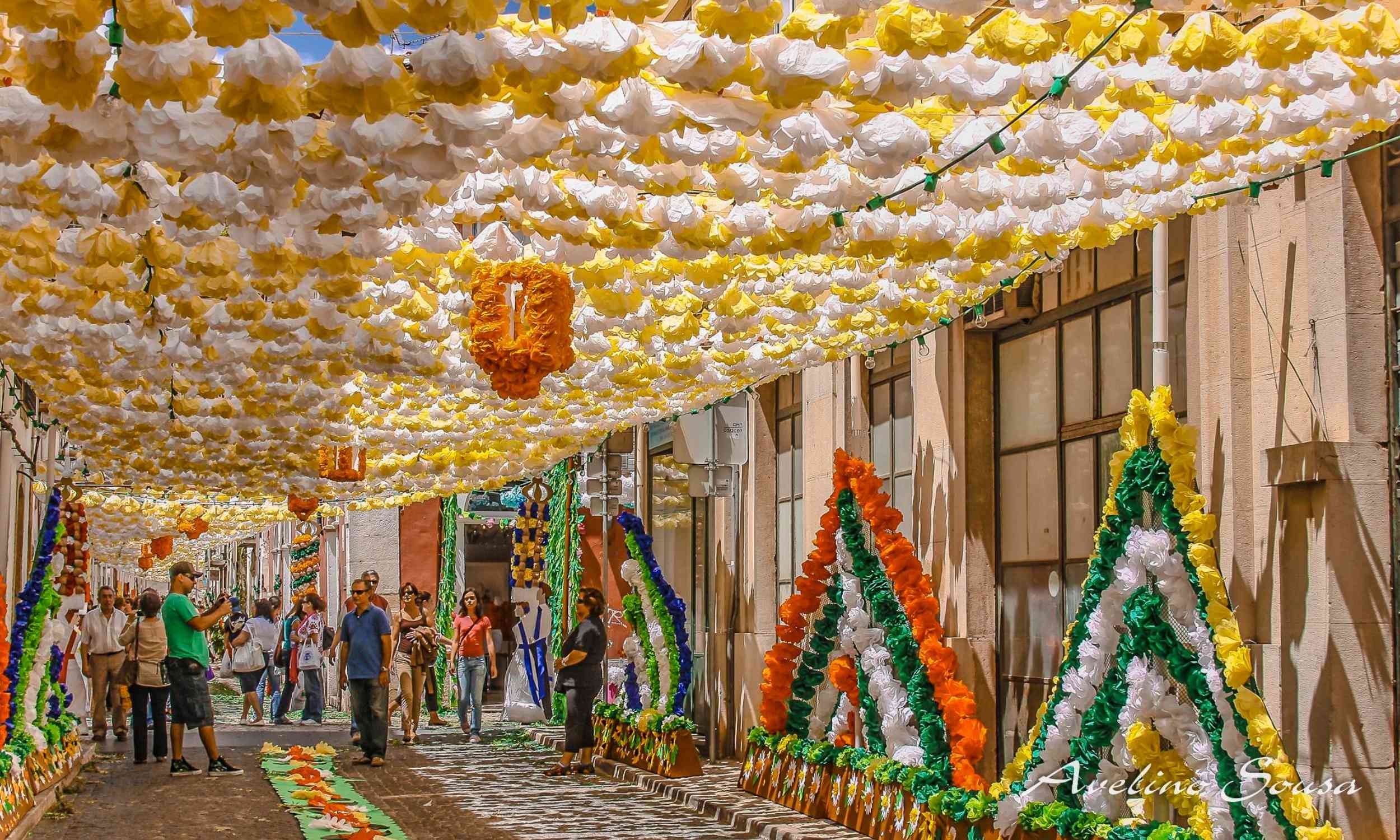
Every four years in July, the historic town of Tomar hosts the Festa dos Tabuleiros (Festival of the Trays), one of Portugal’s most unique and visually striking festivals. The next festival is scheduled for 2027, but its grandeur and cultural significance make it worth mentioning.
History and Origins
The Festa dos Tabuleiros dates back to the 14th century and is rooted in both pagan and Christian traditions. It is held in honor of the Holy Spirit and is one of the oldest and most symbolic festivals in Portugal.
What to Expect
Parades of Trays: The highlight of the festival is the parade of “tabuleiros” – tall trays adorned with bread, flowers, and symbolic decorations, carried on the heads of young women dressed in traditional white dresses.
Flower Carpets: The streets are decorated with intricate flower carpets, adding to the festival’s visual splendor.
Rituals and Traditions: The festival includes various rituals, such as the blessing of the bread and the symbolic release of doves, reflecting its deep religious roots.
Travel Tips
Given the festival’s rarity, planning ahead is crucial. Tomar’s historic sites, such as the Convent of Christ, are also worth exploring. Arrive early for the parade to get a good view and immerse yourself in the town’s rich history and festive atmosphere.
NOS Alive: The Contemporary Music Festival
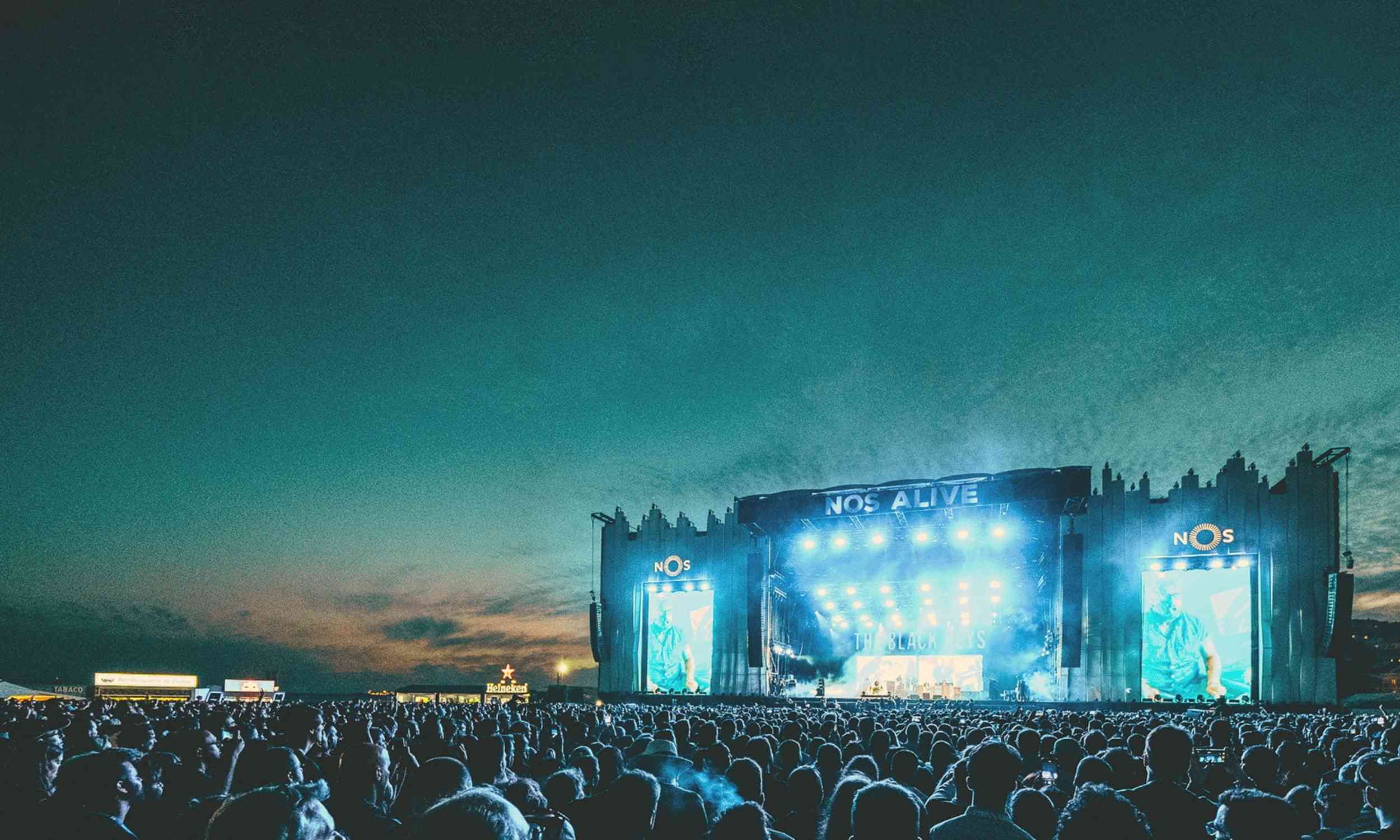
Another major music festival that puts Portugal on the international map is NOS Alive, held in July in the Algés district of Lisbon. Known for its eclectic lineup and stunning location by the Tagus River, NOS Alive attracts music fans from around the world.
History and Origins
NOS Alive, formerly known as Optimus Alive, started in 2007 and quickly gained a reputation for its high-quality lineup and excellent organization. It has become one of Europe’s top music festivals.
What to Expect
Diverse Lineup: Featuring a mix of rock, indie, electronic, and alternative music, NOS Alive has hosted renowned artists such as Radiohead, Arctic Monkeys, and The Chemical Brothers.
Art Installations: The festival grounds are adorned with various art installations and interactive exhibits, providing a feast for the eyes as well as the ears.
Sustainability Initiatives: NOS Alive is committed to sustainability, with numerous initiatives aimed at reducing environmental impact, including recycling programs and eco-friendly facilities.
Travel Tips
Staying in Lisbon provides easy access to the festival, with public transportation options available. The festival grounds are near the river, offering beautiful views and cool breezes. Be prepared for large crowds and a high-energy atmosphere.
Portugal’s summer festivals are a testament to the country’s vibrant cultural heritage and its ability to blend tradition with modernity. Whether you’re drawn to the historical reenactments of Óbidos, the musical celebrations in Zambujeira do Mar, or the lively street parties in Lisbon and Porto, there’s a festival to suit every taste. These festivals not only provide entertainment but also offer a unique insight into the Portuguese way of life, where community, tradition, and joy are at the heart of every celebration. So, pack your bags, embrace the spirit of festivity, and experience the magic of summer in Portugal.
